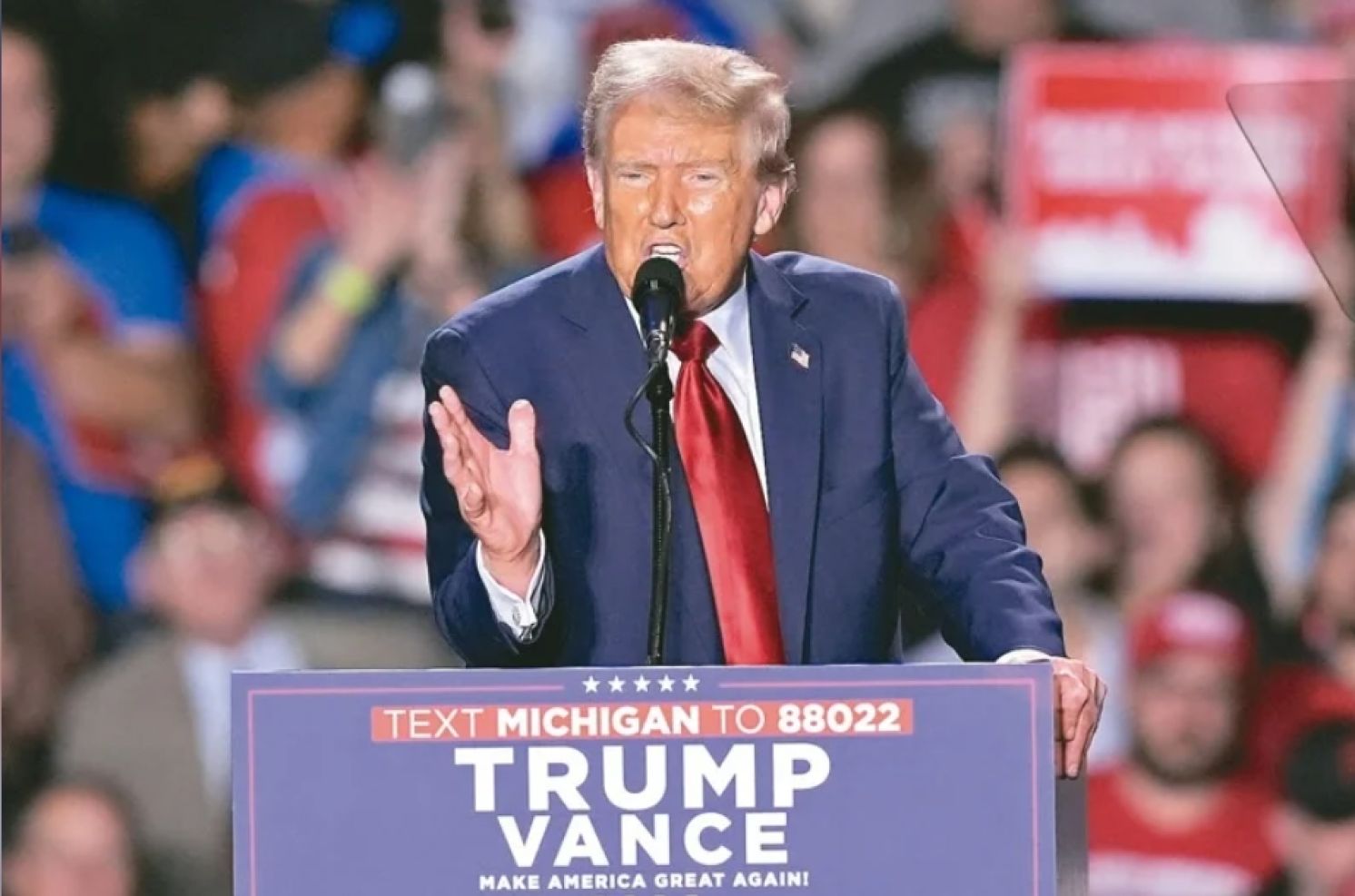
This Week in Taiwan 1020-1026
October 20:
During his inspection tour in Anhui Province on April 17, Chinese President XI Jinping visited a Rocket Force base. According to Hong Kong media, it was likely the 611 Brigade of the Rocket Force's 61st Base, which covers the Taiwan Strait. It is possible that Xi inspected the new Dongfeng-26 ballistic missile. The Dongfeng-26 is the world's largest medium-and long-range anti-ship ballistic missile in active service, with a range of 5,000 kilometers, covering the American military base in Guam. The Singapore United Morning Most analyzed that Xi's intention was to target the United States and deter Taiwan independence.
October 20:
In an interview with the Wall Street Journal, U.S. Republican presidential candidate Donald Trump, discussed the possible scenario of mainland China blockading Taiwan. Mr. Trump said: If you go into Taiwan, I’m sorry to do this, I’m going to tax you...at 150% to 200%.” As for whether he would use U.S. military force to respond to China’s blockade of Taiwan, Trump replied “I wouldn’t have to, because he respects me and he knows I’m f— crazy.”
October 21:
Foreign mission representatives of Saudi Arabia, Oman, and Jordan in Taiwan reported concerns about the non-governmental organization (NGO) "Arab Chamber of Commerce Taiwan" using national flags, causing confusion, misleading, and potentially engaging in fraud. However, the association counter-sued for defamation, and the police even issued a letter requesting the three countries' representatives to explain the case, nearly causing a diplomatic crisis. The representatives felt "depressed" that the Ministry of Foreign Affairs was passive and failed to handle the case appropriate.
October 22:
The Ethics Office of the Ministry of National Defense (MND) recently made major mistakes in handling the property declaration of senior generals and intelligence officials. The entire roster was leaked, including real names of intelligence officers from the Military Intelligence Bureau. Premier Cho Jung-tai stated that, "This is a various serious issue." The MND admitted procedural errors, stating that the data went through five levels of approval before being sent out and will review accountability. Minister of National Defense Wellington Koo stated that frontline intelligence-sensitive personnel were not on the leaked list.
October 22:
American and Canadian war vessels transited through the Taiwan Strait on October 20, which the People’s Liberation Army (PLA) criticized as "provocative." In response, China conducted two live-fire drills along the coast of Fujian Province on October 22, with the exercise locations close to Taiwan and Matsu islands. Among then, Niushan Island in eastern Pingtan is one of the mainland's territorial sea base points and the closest point to Taiwan, with a straight-line distance of only about 165 kilometers from Taipei. ON the same night, the PLA Navy's Liaoning aircraft carrier group sailed north through the Taiwan Strat from the waters near Dongsha.
October 23:
During interpellation at the Legislative Yuan, Minister of National Defense Wellington Koo stated that the PLA refers to the Joint Sword exercise as a "blockade and control of Taiwan," but since it is called a "drill," it falls into a gray area of operational nature. If it were to launch a blockade in accordance with international law, it would be considered an act of war, and Taiwan's Armed Forces would enter an emergency combat phase. He noted that maritime transport through the Taiwan Strait accounts for about one-fifth of the world's shipping value, by which the international community cannot sit idly.
October 24:
Prosecutors and investigators uncovered a corruption case involving Taiyen Biotech Company's subsidiary Taiyen Green Energy. They found that former Chairman Chen Chi-yu and former General Manager Su Kun-huang were involved in hollowing out Taiyen Green Energy through unequal contract terms. After questioning, five people, including Chen, were detained and barred from meeting visitors. The Democratic Progressive Party (DPP) administration has been vigorously developing green energy in southern Taiwan, but corruption cases have been rampant. The scandal surrounding Taiyen Green Energy, supposedly a benchmark for the "symbiosis between fishery and electricity," casts a shadow over Taiwan's green energy transition policy.
October 25:
The Constitutional Court ruled on the constitutionality of parliamentary reform legislation. Six key reforms, including power to hear president's state report, power to hear reports and questioning, consent over political appointments, investigation rights, hearing rights, and criminalization of contempt of parliament, were nearly all unconstitutional, equivalent to substantive unconstitutionality. Although the Legislative Yuan has the right to investigate, the Constitutional Court held that the establishment of special investigation teams by the Legislative Yuan unconstitutional, and the people have no obligation to cooperate with investigations. Government officials not fulfilling constitutional obligations is a political issue and cannot be subject to criminal liability.